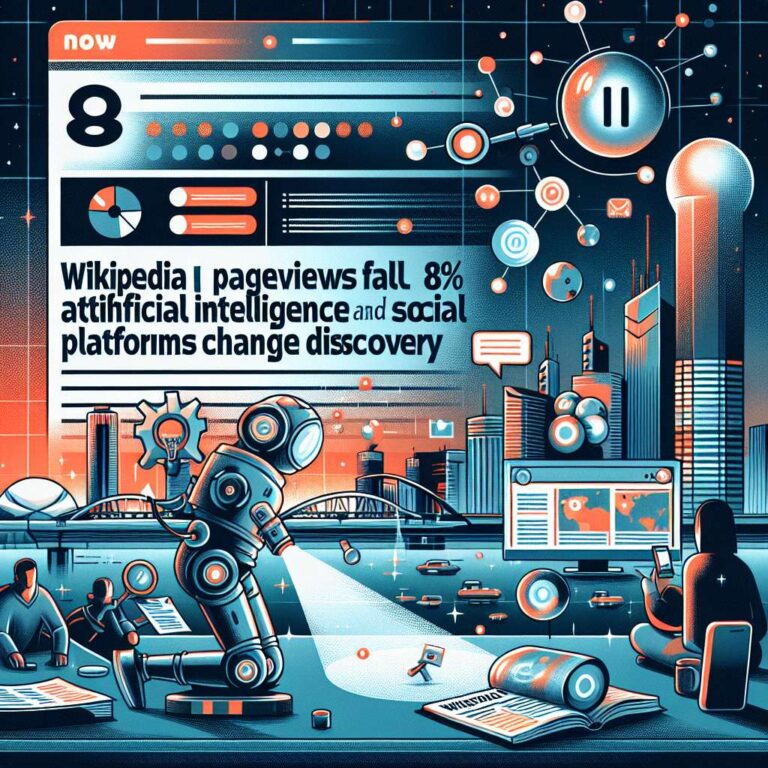Wikipedia has reported an 8 percent decline in human pageviews in 2025 compared with the same period in 2024, attributing the drop to changing information-seeking habits as generative Artificial Intelligence, search engines, and social platforms increasingly provide answers without directing users to the encyclopedia. In a 17 October blog post, the Wikimedia Foundation said evolving internet trends and a rise in sophisticated bot activity are reshaping how people access knowledge globally.
To ensure it is measuring genuine engagement, the Foundation explained that it classifies visits as human or bot. An unusual surge of apparent human traffic in May 2025, largely from Brazil, prompted a review of its detection systems. After updating the classification methods, the organization determined that much of the spike between May and June was actually driven by bots attempting to mimic human behavior, leading to a reassessment of reported traffic.
The report links the pageview decline to broader shifts in discovery. Search engines and Artificial Intelligence chatbots increasingly deliver direct answers derived from Wikipedia content, while younger audiences gravitate to social video platforms instead of the open web. Even so, Wikipedia remains a core source for large language models and other Artificial Intelligence-driven services, meaning volunteer-created articles continue to reach global audiences indirectly, even when users do not click through to the site.
The Foundation warned that reduced on-site traffic can hinder volunteer growth and donor support, both essential to maintaining Wikipedia’s standards of neutrality, verifiability, and transparency. It urged Artificial Intelligence companies, search engines, and social platforms to better surface and attribute Wikipedia as a source, and to encourage visits and participation in the free knowledge ecosystem.
In response to these shifts, the Wikimedia Foundation outlined several initiatives. It is developing a framework for responsible third-party use of content, including technical capabilities through Wikimedia Enterprise. The organization is expanding its Reader Growth and Reader Experience teams to improve engagement, enhancing mobile editing tools and first-time contributor workflows, and experimenting with outreach to younger audiences on YouTube, TikTok, Roblox, and Instagram.
Wikipedia also called on users and volunteers to help protect content integrity. Readers are encouraged to cite sources and engage with original material, while contributors are invited to test new tools, review experiments, and shape the platform’s future, keeping Wikipedia’s human-centered, free knowledge ethos at the forefront.

